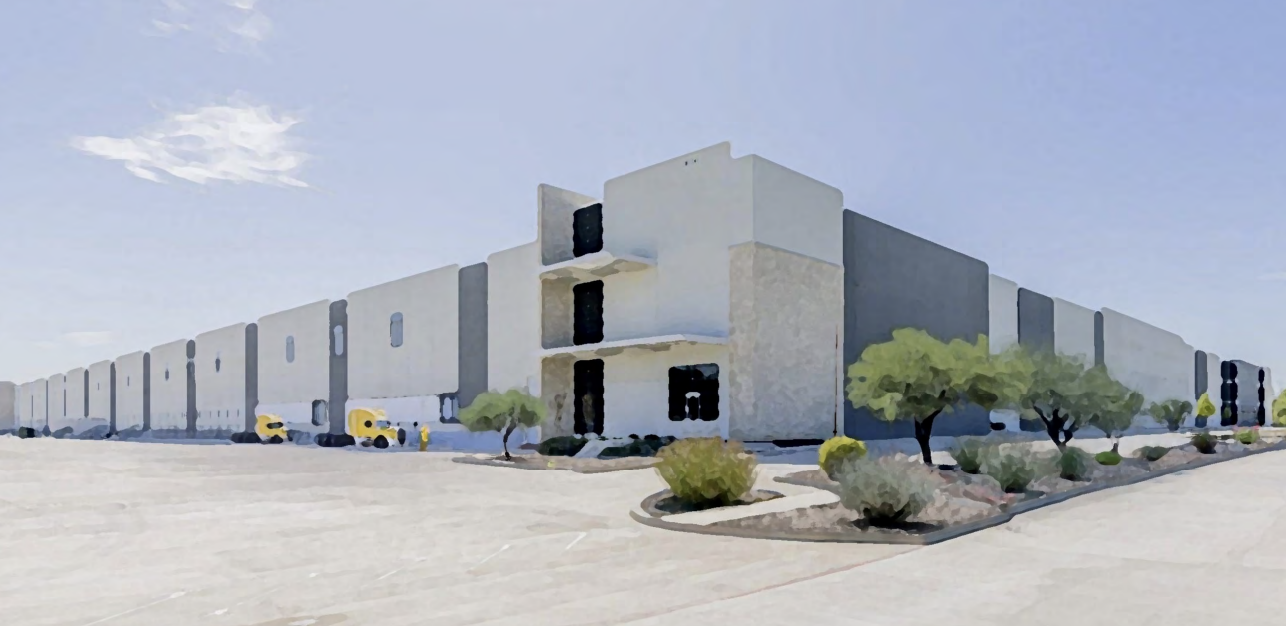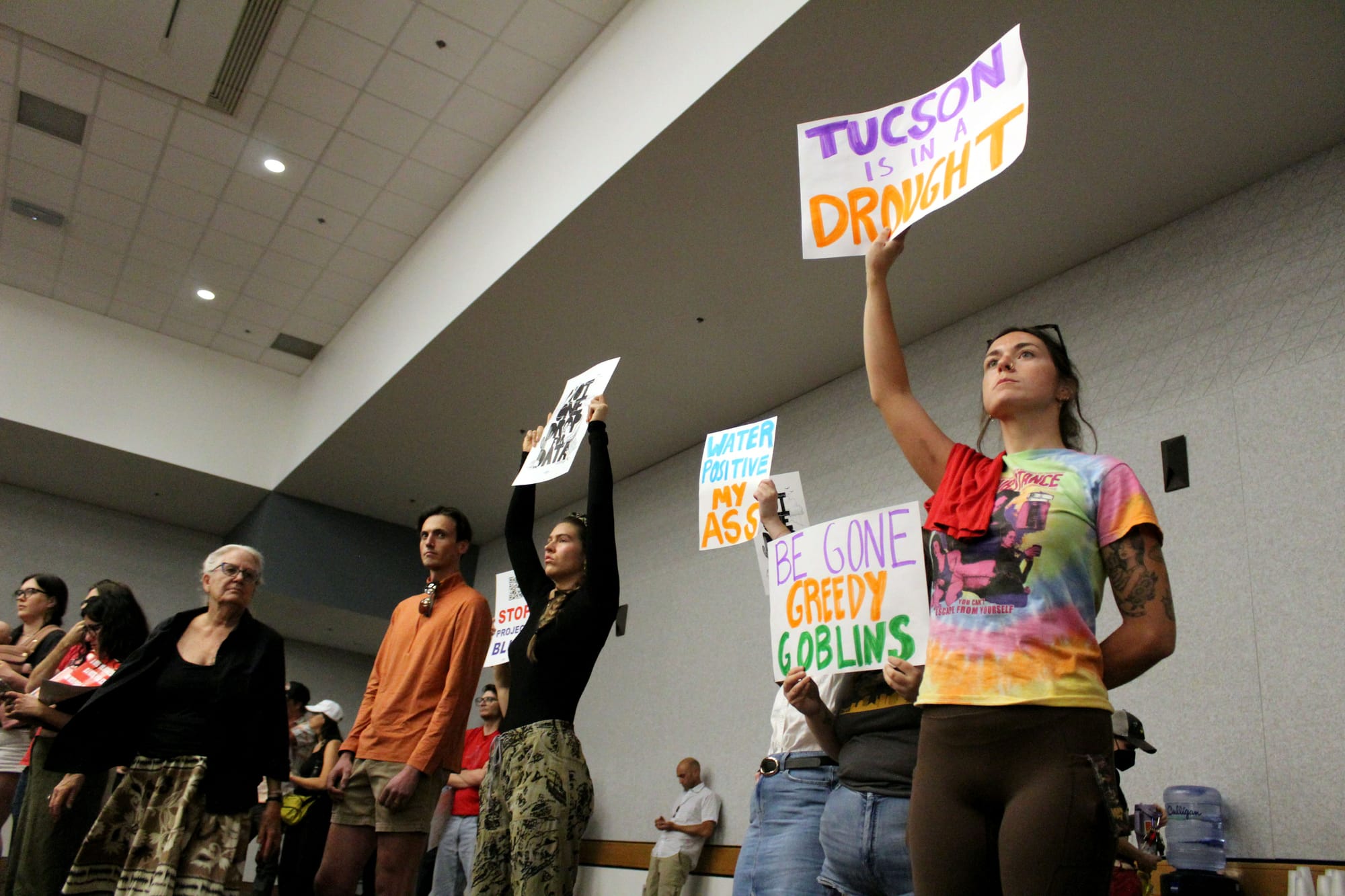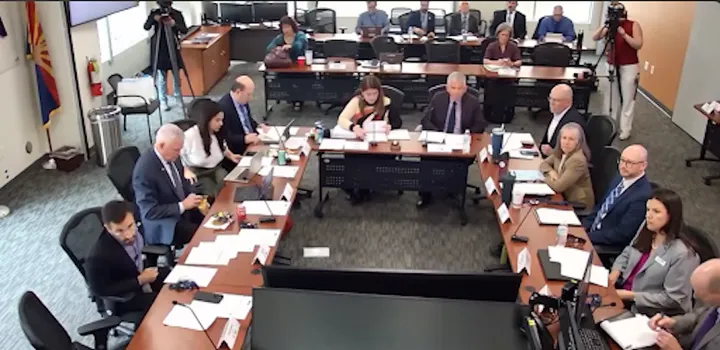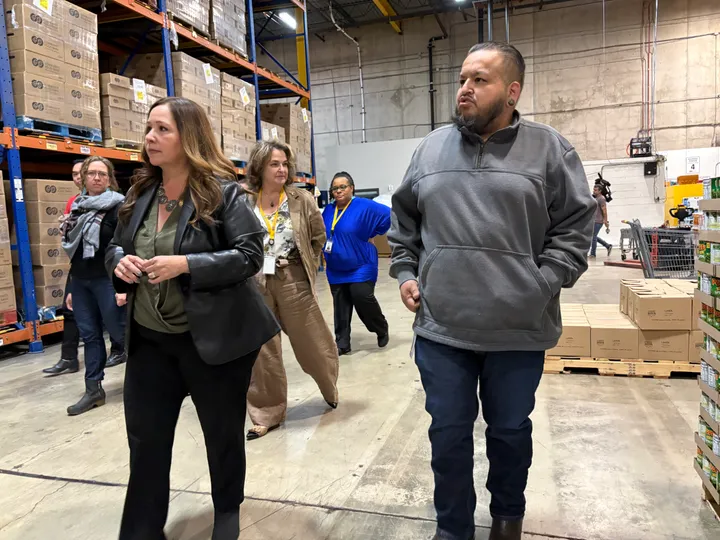Secrecy around Project Blue prompts calls for NDA limits
Pima County Supervisor Jennifer Allen is calling for limits on NDAs after secrecy around the Amazon-backed Project Blue data center left officials and the public without key information on the project’s impact.

Pima County Supervisor Jennifer Allen is calling for limits on non-disclosure agreements, saying secrecy around projects like the Amazon-backed data center seeking to build in Southern Arizona puts corporate interests ahead of the public’s right to know.
The Tucson City Council voted earlier this month to stop the annexation process tied to Project Blue, but the Arizona Luminaria reported Tuesday that developer Beale Infrastructure and Tucson Electric Power were moving forward with the project outside Tucson city limits and had filed a special request with the Arizona Corporation Commission to secure energy for the first phase.
A non-disclosure agreement is a legally binding contract that limits what a person can and cannot share publicly.
Pima County has been bound by an NDA tied to Project Blue since at least June 2024, which concealed key details from both the public and some elected officials. As a result, supervisors lacked complete information when they voted in June to approve the sale of 290 acres of desert to Project Blue.
“It feels like a broken promise,” Allen told Tucson Spotlight, adding that Tucson doesn’t need data centers—data centers need the desert. “There are increasing regulations all over America. The utilities are getting tapped out. They’re unable to provide and meet the energy demand, so they want to come here because it is a dry desert, which keeps their equipment in good shape.”
The City of Tucson is currently under six NDAs. The Luminaria previously reported that the Project Blue NDA contained details, including the project’s backer.
“By my understanding, what I have been told is that this particular NDA and the work around Project Blue has been the most far-reaching NDA that the county has encountered in recent memory,” Allen said.

But legal experts note that even agreements like NDAs are subject to limits under the law. In general, adults who are legally competent can make contracts about almost anything they want, as long as it isn’t illegal or clearly against public policy, said David Super, a professor of law and economics at Georgetown University who specializes in property and contract law.
Another key detail the Project Blue NDA kept hidden was the amount of energy and water the project would consume. Super said water and energy are just factors of production in an NDA, “not different in any kind from the secret formula underlying a popular soft drink.”
“If consuming that much water, or that much energy would violate environmental laws, that would be a different matter,” he said.
The initial NDA for Project Blue was signed in 2022, according to Tucson City Manager Tim Thomure, who said in an interview that these agreements constrained public discussion about the project.
“That’s something we’re going to need to figure out,” Thomure said during an interview on the Bill Buckmaster Show. “How do we not put a stranglehold on potential economic development, but we have enough opportunity to have a dialogue that is with the public?”
Thomure said he got involved in the negotiation process for Project Blue in early May but has known about the proposed data center for two years. Although he hasn’t signed any NDAs himself, he still abides by them, including the most recent one from March.
“We will look at reforming how we address non-disclosure agreements and create timely conversations with the public,” Thomure said.

Allen says that by relying on NDAs in economic development, the city is prioritizing the private interests of companies over the public’s.
“It says that we are protecting the interests of the for-profit company over the interests of transparency, the public’s right to know and policymakers’ right to know,” she said, adding that she’s calling for a widespread reform of policies surrounding NDAs. “We’re working to get our lobbyists to try to build some support for ending the state and local sales tax exemption for data centers’ purchase of equipment.”
Allen also wants to look at zoning regulations to ensure data centers will no longer be able to go through an expedited zoning process.
“Instead, it will require a conditional use permit, planning and zoning review and vote, public hearings and conditions can be put on them,” she said.
Allen is looking at the guardrails put in place by other cities, states, and municipalities regarding NDAs. She pointed to San Francisco, which prohibits its city government from entering confidential settlements.
She said NDAs should be narrowly targeted, used only to protect specific information rather than broadly concealing entire projects.
Allen said the draft NDA policy will appear on the Board of Supervisors’ September agenda for a vote. She added that the supervisors approved moving forward with the policy by a 4-1 vote.
“There has to be a rationale for (confidentiality), and that rationale should not supersede and be in conflict with the public’s right to know,” Allen said.
Arilynn Hyatt is a journalism major at the University of Arizona and Tucson Spotlight intern. Contact her at arilynndhyatt@arizona.edu.
Tucson Spotlight is a community-based newsroom that provides paid opportunities for students and rising journalists in Southern Arizona. Please consider supporting our work with a tax-deductible donation.



